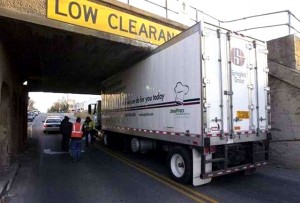 We breathe air.
We breathe air.
Unlike abortion and gay marriage, there seems to be a lot of agreement on this. We all accept that breathing is not a luxury, not a hobby, not a pastime, not entertainment.
Breathe in, breathe out __ it’s something as constant as our heartbeat and only stops when our heart stops.
Isn’t breathing an absolute? Isn’t air __ or more accurately the oxygen in the air __ one of the fundamental building blocks of life for us human beings? Is there anything contentious or controversial about our need and our basic natural biological right to breathe air?
In National Values 101 I stated, however, we’re not talking any old air. We’re not talking about air that’s full of industrial smoke, automotive particulates, carbon monoxide, or invisible toxic gases. We’re not talking about air that burns the eyes, irritates our nasal passages, makes it painful to breathe, turns our lungs black, and consigns us to living on a respirator. We’re not talking about air that is carcinogenic and will lead to tumors and kill us before our time is due.
Can we all agree on this?
Yet too often we are given false choices:
If you want a job, then you’ll have to put up with “acceptable” levels of pollution.
Either you want the economy to grow or you want the government regulating everything. You can’t have it both ways.
This is not only nonsense. It is propaganda __ the polite term for boldface lies __ and is irresponsibility at its worst. It is abandoning our public duty and a priori commitment to live in a country where concern for its citizens __ concern for one another __ is central and paramount. It is ignoring our constitutional mandate as citizens in a democracy to promote the general welfare.
I know there are libertarians and other minimalist ideologues out there who dispute this.
There’s a contact button on the right side of this page: If anyone out there has a coherent justification for saying . . .
“I have no problem having my children breathe air which makes them sick, will cause them cancer or emphysema, compromise the quality of their lives, and resulting in them dying younger than they should.”
. . . please send it to me. I’d love to see what your craven mind has conjured up.
Does this sound melodramatic?
It’s not.
Sometimes things are that simple.
To poison or not poison. That’s the question.
The issue is not where we draw the line __ what constitutes acceptable levels of poison in our atmosphere __ but how we hold the line that respects human life and good health.
The general welfare.
Of course, where it gets dicey and muddled by a lot of self-serving propaganda, ideological dogma and outright deception, is what role government has in protecting the quality of air.
Let’s cut to the chase.
Can each individual household afford to have its own fire brigade available in case of fire? Can each individual household hire someone to drive an envelope over to the bank to pay the mortgage payment? Can each individual household raise an army, equip an air force, deploy a flotilla of battle ships and nuclear submarines to protect itself from invasion by hostile foreign militaries? Can each individual household afford to pave the road between home and school, home and work, home and the grocery store?
Can each individual household muster the necessary legal team and cash to stop a factory down the road from spewing toxic gas into the air?
Government, especially one which consists of the citizens of the country, is by definition __ as delineated in our constitution __ the way we collectively do those things which we cannot individually do. And it is the strength of our system, certainly not a weakness, that government performs services on behalf of all of us for the betterment of all of our lives.
We’ve forgotten this.
I’m not pointing fingers. I’m just as much a victim of the tsunami of sheer nonsense that fills the media and the overwhelming cyclone of bullshit that passes for discussion of the “important issues of our times.” It’s all but impossible to keep a clear head and the needed focus to make sense out of our relationship to the institutional machinery in place to do our bidding, often to assure some of the most basic items to a healthful, productive life.
Like clean air!
This is the point of what some may perceive as very facile, simpleminded blog posts. But I sincerely believe that we need to get back to the fundamentals again. What are the basics? What are those things which we not only should treasure and hold dear but are areas of universal agreement?
We often get so caught up in the fighting, name calling, assigning blame, bickering, that we forget that our nation was predicated on some very solid fundamental values, drawn from the Bible, the teachings of great philosophers and legendary teachers, the wisdom of the ages, even borrowing from the ministry of Christ during his short time on Earth.
National values.
Somehow we’ve lost sight of them. We’ve lost sight of the obvious.
I’m reminded of a story __ and I have no idea whether it’s true or not but it’s a great story __ I heard when I was a teenager.
There was a large tractor-and-trailer rig which got stuck under an overpass. This was right in town, on a single lane road, so it was creating havoc and causing a bad traffic jam. They had hooked up giant powerful tow trucks and diesel-powered winches. But the truck was wedged in and just wouldn’t budge. They were now going to resort to huge metal cutting wheels and blow torches to carve off the top of the trailer.
A 10-year-old boy who was walking home from school happened on the unfolding drama. As he passed a burly man wearing a safety helmet, at that very moment in the middle of directing his team to start cutting the truck up, the boy tapped him on the shoulder.
“Excuse me, sir. But I was wondering. Why don’t you just let the air out of the tires?”
Sometimes the answer is staring you right in the face.
You just have to look.




National Values 102
Unlike abortion and gay marriage, there seems to be a lot of agreement on this. We all accept that breathing is not a luxury, not a hobby, not a pastime, not entertainment.
Breathe in, breathe out __ it’s something as constant as our heartbeat and only stops when our heart stops.
Isn’t breathing an absolute? Isn’t air __ or more accurately the oxygen in the air __ one of the fundamental building blocks of life for us human beings? Is there anything contentious or controversial about our need and our basic natural biological right to breathe air?
In National Values 101 I stated, however, we’re not talking any old air. We’re not talking about air that’s full of industrial smoke, automotive particulates, carbon monoxide, or invisible toxic gases. We’re not talking about air that burns the eyes, irritates our nasal passages, makes it painful to breathe, turns our lungs black, and consigns us to living on a respirator. We’re not talking about air that is carcinogenic and will lead to tumors and kill us before our time is due.
Can we all agree on this?
Yet too often we are given false choices:
If you want a job, then you’ll have to put up with “acceptable” levels of pollution.
Either you want the economy to grow or you want the government regulating everything. You can’t have it both ways.
This is not only nonsense. It is propaganda __ the polite term for boldface lies __ and is irresponsibility at its worst. It is abandoning our public duty and a priori commitment to live in a country where concern for its citizens __ concern for one another __ is central and paramount. It is ignoring our constitutional mandate as citizens in a democracy to promote the general welfare.
I know there are libertarians and other minimalist ideologues out there who dispute this.
There’s a contact button on the right side of this page: If anyone out there has a coherent justification for saying . . .
“I have no problem having my children breathe air which makes them sick, will cause them cancer or emphysema, compromise the quality of their lives, and resulting in them dying younger than they should.”
. . . please send it to me. I’d love to see what your craven mind has conjured up.
Does this sound melodramatic?
It’s not.
Sometimes things are that simple.
To poison or not poison. That’s the question.
The issue is not where we draw the line __ what constitutes acceptable levels of poison in our atmosphere __ but how we hold the line that respects human life and good health.
The general welfare.
Of course, where it gets dicey and muddled by a lot of self-serving propaganda, ideological dogma and outright deception, is what role government has in protecting the quality of air.
Let’s cut to the chase.
Can each individual household afford to have its own fire brigade available in case of fire? Can each individual household hire someone to drive an envelope over to the bank to pay the mortgage payment? Can each individual household raise an army, equip an air force, deploy a flotilla of battle ships and nuclear submarines to protect itself from invasion by hostile foreign militaries? Can each individual household afford to pave the road between home and school, home and work, home and the grocery store?
Can each individual household muster the necessary legal team and cash to stop a factory down the road from spewing toxic gas into the air?
Government, especially one which consists of the citizens of the country, is by definition __ as delineated in our constitution __ the way we collectively do those things which we cannot individually do. And it is the strength of our system, certainly not a weakness, that government performs services on behalf of all of us for the betterment of all of our lives.
We’ve forgotten this.
I’m not pointing fingers. I’m just as much a victim of the tsunami of sheer nonsense that fills the media and the overwhelming cyclone of bullshit that passes for discussion of the “important issues of our times.” It’s all but impossible to keep a clear head and the needed focus to make sense out of our relationship to the institutional machinery in place to do our bidding, often to assure some of the most basic items to a healthful, productive life.
Like clean air!
This is the point of what some may perceive as very facile, simpleminded blog posts. But I sincerely believe that we need to get back to the fundamentals again. What are the basics? What are those things which we not only should treasure and hold dear but are areas of universal agreement?
We often get so caught up in the fighting, name calling, assigning blame, bickering, that we forget that our nation was predicated on some very solid fundamental values, drawn from the Bible, the teachings of great philosophers and legendary teachers, the wisdom of the ages, even borrowing from the ministry of Christ during his short time on Earth.
National values.
Somehow we’ve lost sight of them. We’ve lost sight of the obvious.
I’m reminded of a story __ and I have no idea whether it’s true or not but it’s a great story __ I heard when I was a teenager.
There was a large tractor-and-trailer rig which got stuck under an overpass. This was right in town, on a single lane road, so it was creating havoc and causing a bad traffic jam. They had hooked up giant powerful tow trucks and diesel-powered winches. But the truck was wedged in and just wouldn’t budge. They were now going to resort to huge metal cutting wheels and blow torches to carve off the top of the trailer.
A 10-year-old boy who was walking home from school happened on the unfolding drama. As he passed a burly man wearing a safety helmet, at that very moment in the middle of directing his team to start cutting the truck up, the boy tapped him on the shoulder.
“Excuse me, sir. But I was wondering. Why don’t you just let the air out of the tires?”
Sometimes the answer is staring you right in the face.
You just have to look.